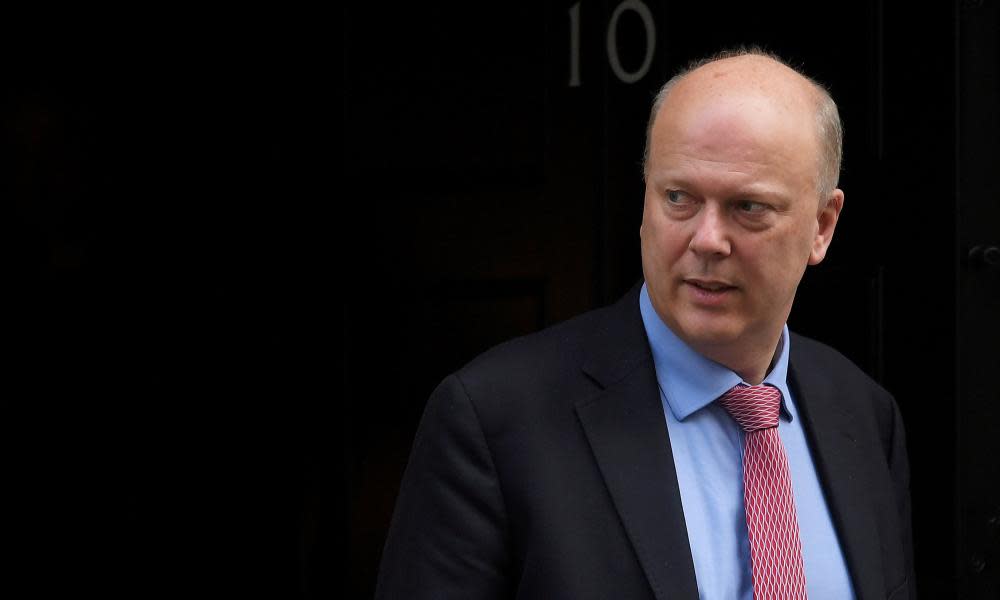Part-privatisation of probation sector 'is a mess', MPs say

The part-privatisation of the probation sector spearheaded by Chris Grayling during his time as justice secretary is a “mess” and may never work, MPs have warned in a damning report that heavily criticises the reforms.
Four years after Grayling put his “transforming rehabilitation” plan into action, a report by the justice committee, led by the Conservative MP Robert Neill, said it was unconvinced the changes would deliver an effective or viable service for managing offenders in the community.
Disappointing reductions in reoffending, complicated delivery of services, a failure to open up the probation services to charities and volunteer organisations, low morale among staff and remote contact between probation workers are among some of the key criticisms levelled by the committee.
The committee has recommended the Ministry of Justice review the future of the entire probation sector and consider fresh alternatives to Grayling’s reforms.
The probation sector in England and Wales was overhauled in 2014 by Grayling, who broke up existing probation trusts and replaced them with a public sector service dealing with high-risk offenders and 21 privately run companies that manage low-to-medium risk offenders. He introduced a “payment by results” system based on reducing rates of reoffending and a “through the gate service (designed to help prisoners resettle in their communities)” for all offenders, regardless of length of sentence.
The critical report comes at the end of a week in which Grayling faced a no-confidence motion in parliament over his ability to carry out his current role as transport secretary, following the rail timetable fiasco. MPs narrowly backed him in a vote on the motion, although few of his fellow Tories rallied to his defence.
Neill said: “The transforming rehabilitation reforms had some laudable aims but these reforms have failed to meet them. We are unconvinced that transforming rehabilitation will ever deliver the kind of probation service we need.
“There are major questions to be answered on a whole range of issues, including the support people get when they leave custody, the performance of probation providers, contracts with CRCs [privately-run community rehabilitation companies], poor staff morale and the involvement of the voluntary sector.
“This has a negative impact on the number of individuals who go on to reoffend. Hard working and dedicated staff are doing their best with a probation system that is currently a mess.”
The criticism from the justice committee echoes that from the chief inspector of probation, Dame Glenys Stacey, who in December revealed Grayling’s reforms had led to tens of thousands of offenders – up to 40% of the total – being supervised by telephone calls every six weeks instead of face-to-face meetings.
Stacey warned the changes had created a “two-tier and fragmented” probation system with most private rehabilitation companies struggling to deliver.
Richard Burgon, shadow justice secretary, said: “This is yet more evidence of the widespread damage that the Conservatives’ part-privatisation has caused to our probation system.
“This damning report should be a wake-up call for the Conservatives to finally accept that its ideologically driven reforms have failed.
“Labour is committed to returning this essential service back-in house where it can focus on reducing reoffending rather than making profits for private companies.”
The justice committee has recommended a review into the long-term future and sustainability of delivering probation services under the models introduced by Grayling including comparing to fresh alternatives.
The prisons and probation minister Rory Stewart said: “This was a significant programme of reform. For instance, an additional 40,000 people who would not previously have been monitored now receive support and supervision upon release. Fewer people are reoffending and there have been some innovative and impressive programs.
“However, we accept that there have been challenges and it is clear that CRC services do need to improve. We are currently in commercial discussions with providers and will consider all possible options to ensure we deliver this improvement.”

 Yahoo News
Yahoo News 
